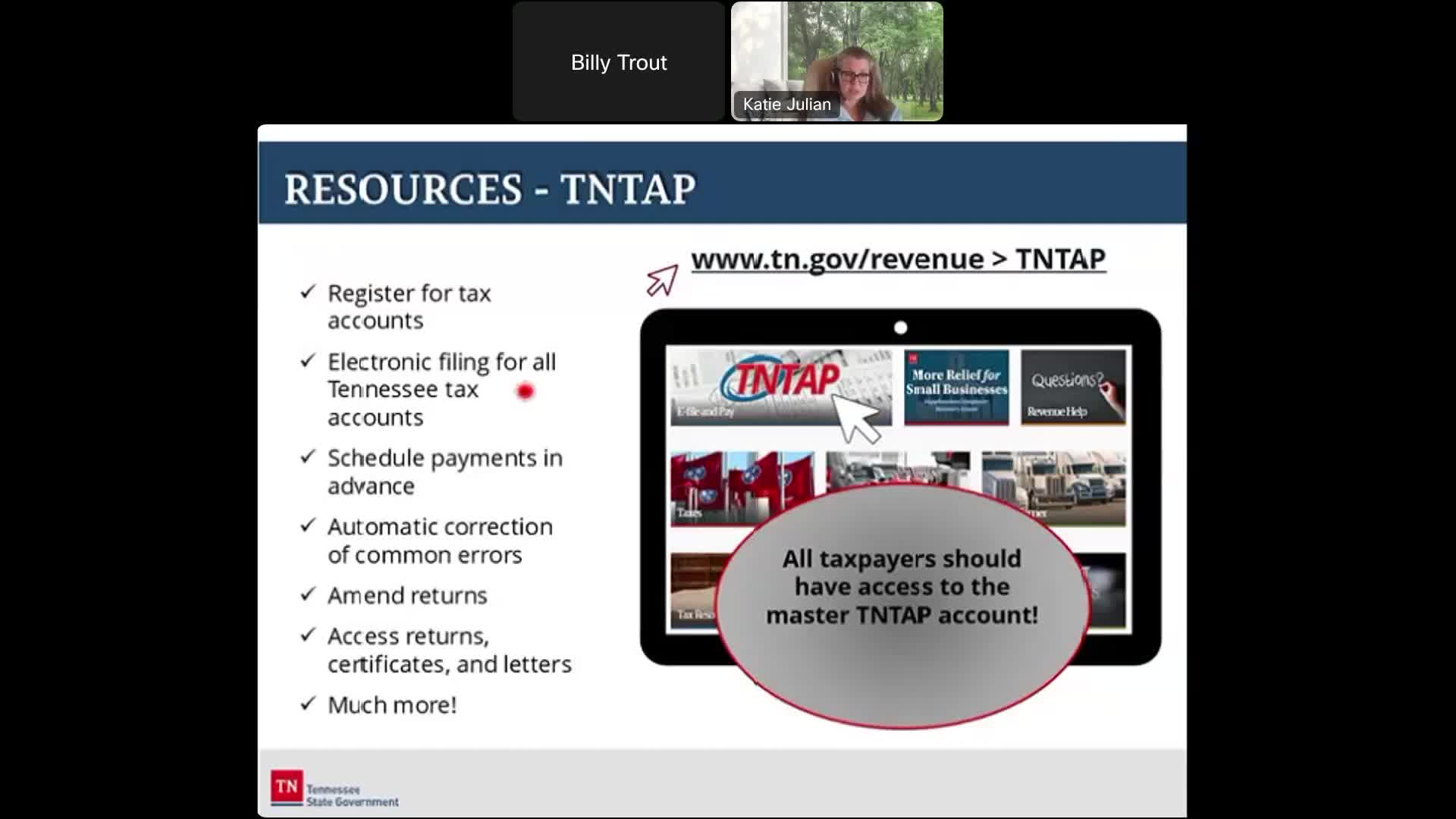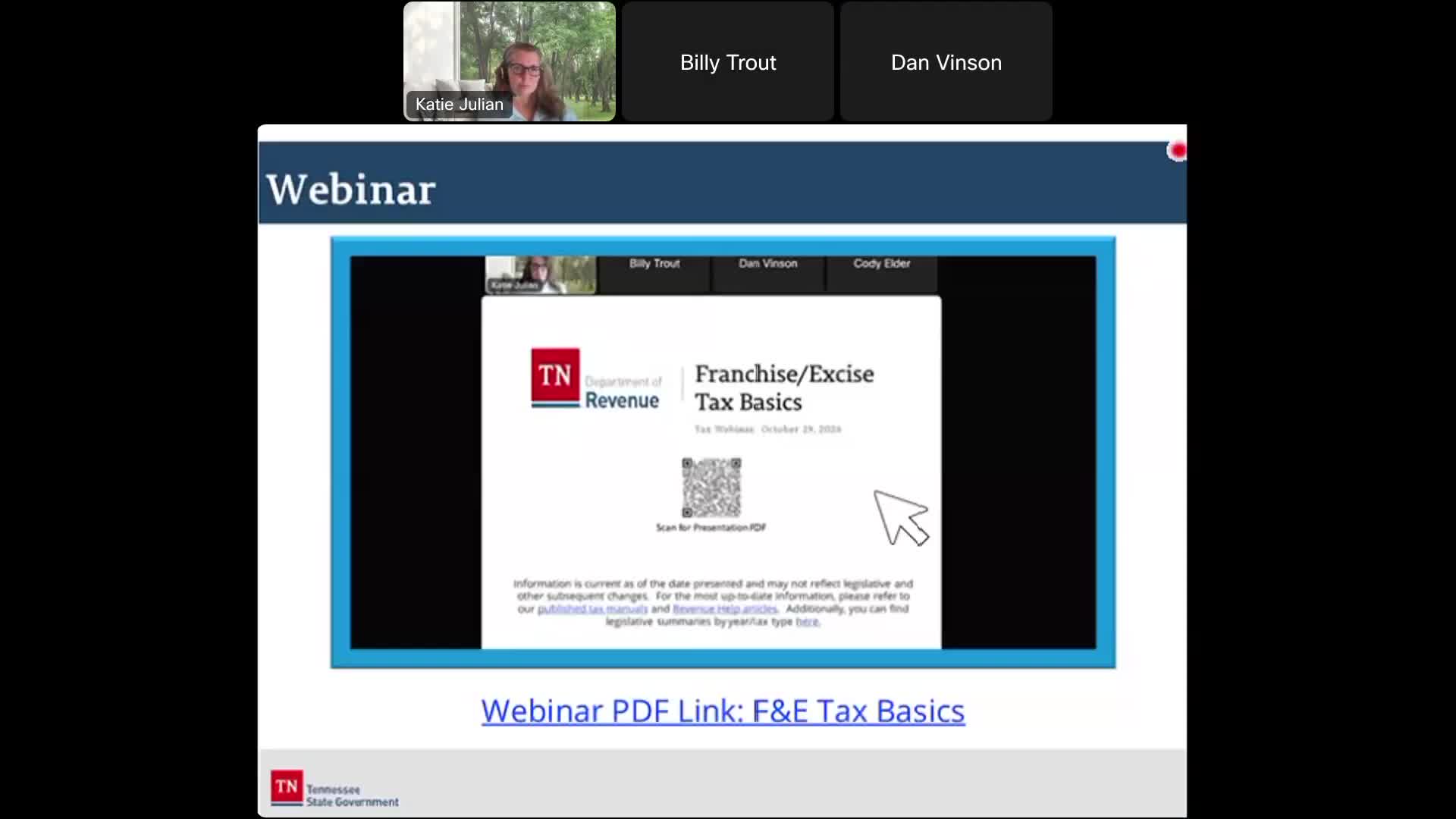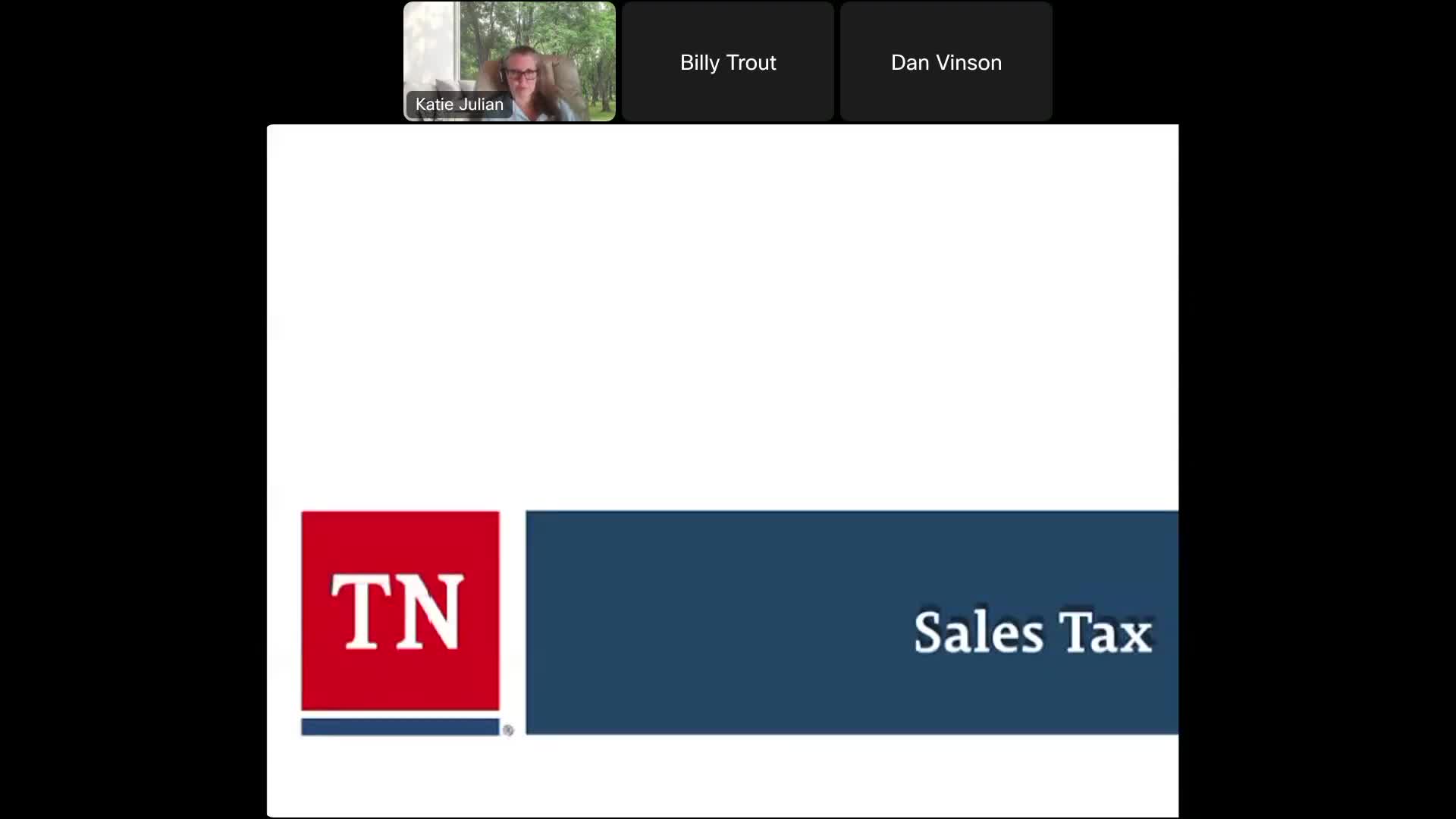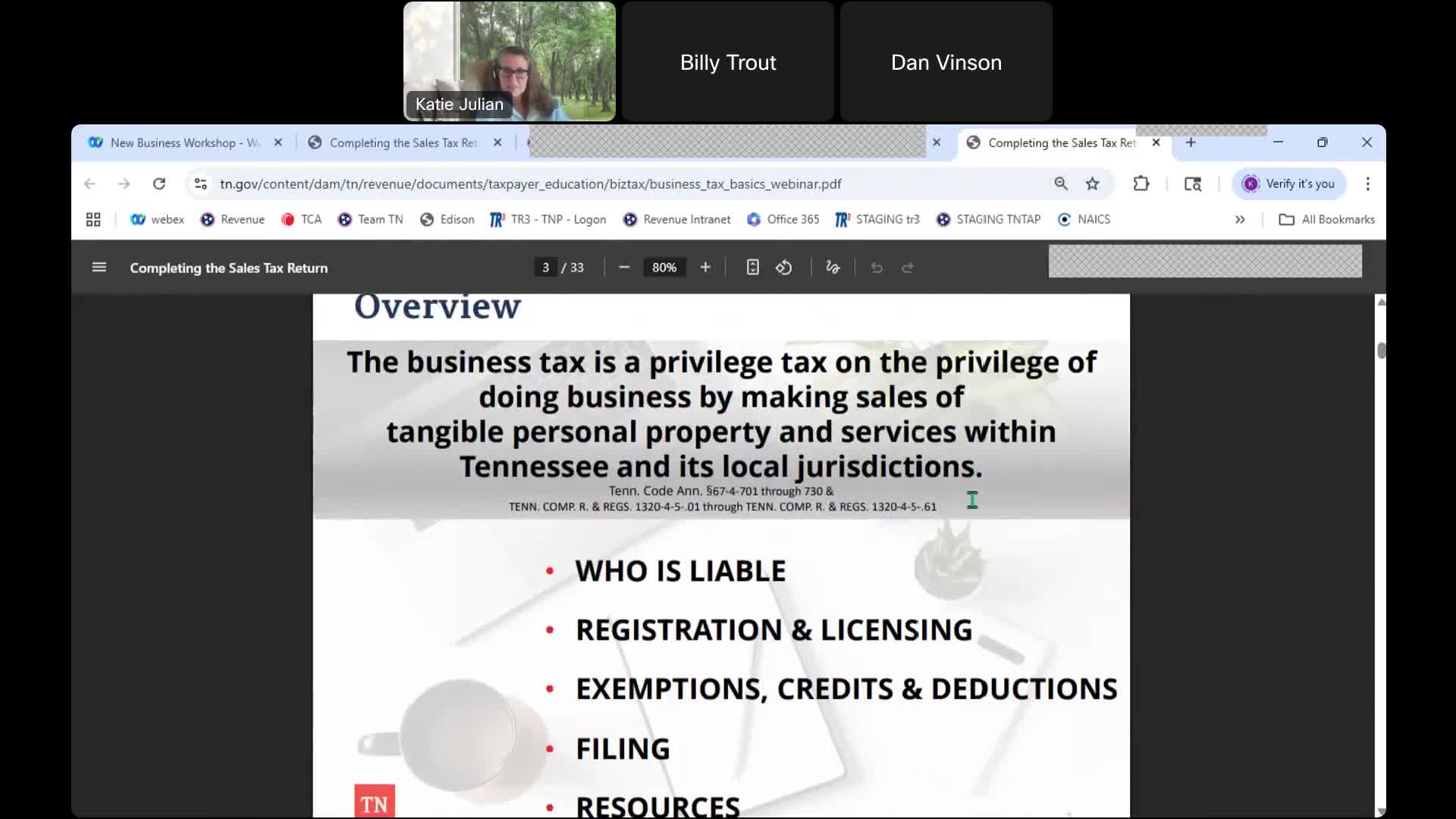Article not found
This article is no longer available. But don't worry—we've gathered other articles that discuss the same topic.

Tennessee DOR demonstrates TenTap, manuals and help resources for new businesses

DOR explains franchise and excise (F&E) tax basics, filing deadlines and extension rules

Tennessee DOR outlines sales tax rules, rates and exemptions for new businesses

